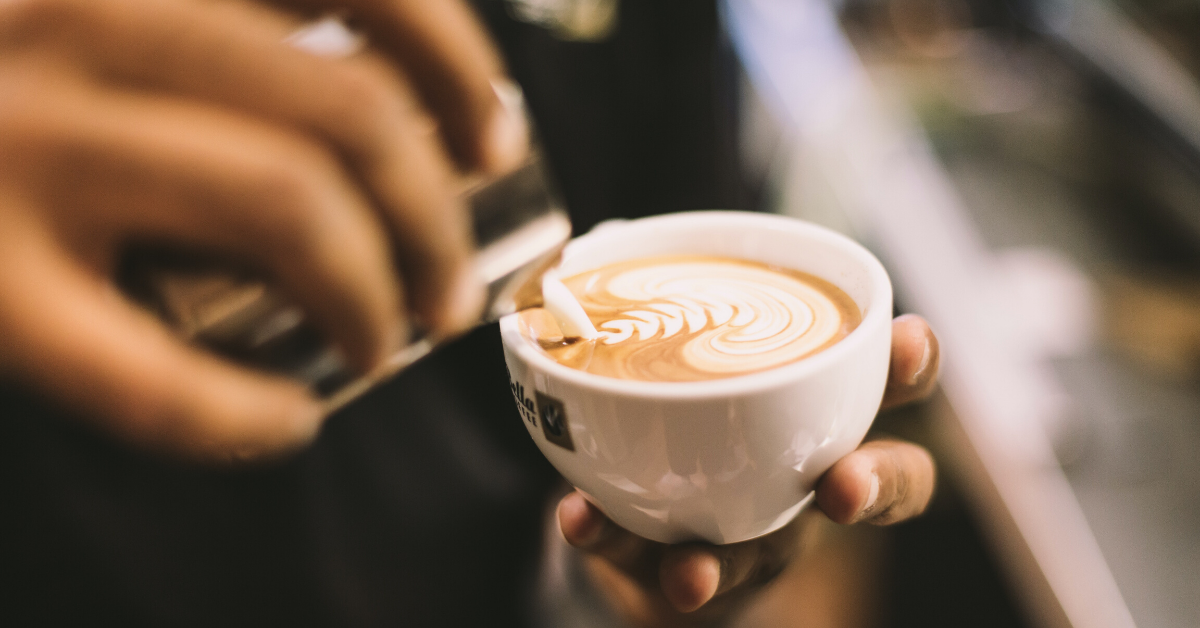
Is it safe to drink coffee if you have diabetes? Jewels Doskicz, RN shares the answers and a guide to drinking coffee if you have diabetes.
What makes coffee so special? It’s not simply about “drinking coffee.” For many, it’s a lovely part of a morning ritual. The puttering of a coffee pot as it brews up a favorite blend, the smell wafting around the house, and the familiar warm cup in hand. It’s a great welcome to a new day.
We live in a caffeine-infused society. Most people are convinced that coffee consumption will keep them on top of a fast-moving life (and are willing to pay exorbitant prices for it).
But what happens when you add diabetes and insulin resistance to the mix - does caffeine matter?

Should I Stop Drinking Coffee?
You may be thinking “coffee or death,” and if you are, I stand by you. My morning espresso from my stovetop Bialetti is standard procedure at the start of my day. So thankfully, moderation is the real winner here.
Many jokingly consider coffee to be a ‘food group’ – and aren’t very approachable individuals before that first cup hits their bloodstream. (But first, coffee.)
We’ve gotten so selective about our beans and brews that making coffee or espresso at home is a last resort. And people are doing goofy things like taking a “coffee nap.” With the average adult consuming two 8-ounce cups of coffee per day, our reliance on this beverage is strong.
For those living with diabetes, caffeine can impact the action of insulin, resulting in high or low blood sugar levels, according to Joslin Diabetes Center. I personally notice a blood sugar raising effect in the morning, if I drink coffee before eating and taking insulin.
Diabetes certainly doesn’t prevent us from coffee drinking or espresso indulgence, but there are some things to keep in mind, especially as you eye that caramel mocha latte:
-
Fancy coffee drinks and their sweeteners pack in the calories and the carbs. Consider drinking black coffee with a small amount of milk or creamer, add water to espresso (Americano style), or buy the smallest size of regular coffee. Ask if there is a low-sugar version that uses artificial or alternative sweetener instead.
-
Caffeinated coffee can be dehydrating. Drink a cup of water while your coffee’s brewing.
-
Cap your daily caffeine and coffee intake – identify a stopping point and stick to it.
-
Caffeine is found in many processed products, so be sure to read your labels.
-
Beverages with caffeine have stimulatory side effects and can cause feelings of anxiety and restlessness.
-
Many people cannot tolerate caffeine in the afternoon without it affecting their sleep--don't forget that decaf coffee exists, too.
-
If you have cardiac issues, kidney insufficiency, anxiety, or insomnia – keep close tabs on your caffeine consumption.
-
Identify any patterns you may have with caffeine and its blood sugar effects.
Try drinking something else instead:
-
Fancy up your water with a lemon or lime wedge, or frozen berries.
-
Herbal teas (hot or iced) are naturally caffeine-free choices.
-
Carbonated water is a favorite of most. If you enjoy it, SodaStreams are popular kitchen units and can often be found second-hand.
Does Coffee Have Health Benefits?
You may be thinking, “ok, great, but aren’t there health benefits associated with coffee too?” According to the New York Times, there are. A study in the U.K. found that coffee drinkers “had a lower risk of death from all causes,” especially heart disease. Coffee beans boast high polyphenols and healthy antioxidant properties, and have been shown to improve athletic performance, energy levels, and mood. It’s also a good source of magnesium and potassium.
Be mindful of the effects of coffee and its caffeine content--one 8-ounce serving of coffee carries 95 mg of caffeine, with up to 400 mg of caffeine per day being the max you can generally safely consume as a healthy adult. Even decaffeinated coffee still has a few milligrams of caffeine, though this amount is usually negligible.
Does Coffee Prevent Diabetes?
In terms of prevention of type 2 diabetes or reducing the risk of diabetes for those with prediabetes: research has mixed findings - ultimately making it easy for consumers to hear what they want to.
Once again, the common denominator is moderate consumption. And the magic bullet is found in two, small, 8-ounce servings of coffee per day according to Beth Israel Deaconess Medical Center and Harvard School of Public Health. I’m sure that you’re familiar with the consumption curve of other dietary habits as well. Caffeine is part of this equation, too.
As much as we’d like to buy into the habitual consumption of coffee, other research refutes this suggestion with findings that it raises blood glucose and insulin levels.
Stay Hydrated
It’s up for debate whether caffeine is an addictive substance, but it can certainly be a dehydrating one.
Staying hydrated can be a working challenge when it comes to diabetes care, particularly if blood sugars are running on the high side. Blood sugars are relational to hydration (or how much liquid you currently have in your tank). If your tank is running on the empty side, your blood sugar will be more concentrated – resulting in a higher number.
By practicing awareness of your daily caffeine consumption, you may begin to notice patterns developing with your diabetes management. And, you may be consuming more than you think. Our community would love to hear more about you, so please do share - we can all benefit from the wisdom of others.

